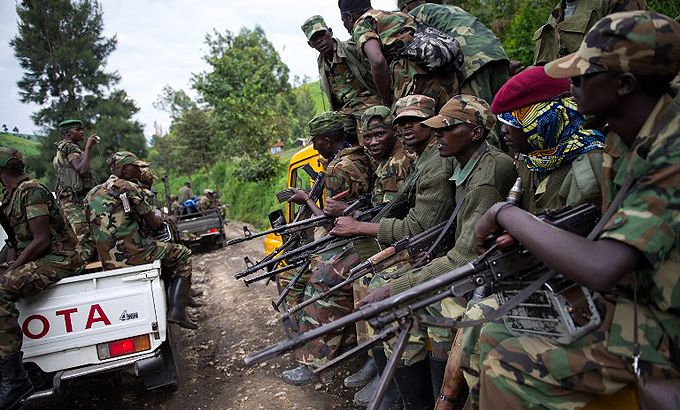
M23: On the brink of defeat?
We ask if the might of the Congolese rebel group is waning, or if it can still fight back.
The M23 rebels in the Democratic Republic of Congo (DRC) are on the brink of defeat, according to the United Nations.
The special envoy told the UN Security Council that the armed rebel group no longer posed a military threat. The M23 rebels abandoned most of their military positions in the eastern Congo after four days of heavy fighting against government soldiers.
Peace talks between the government and M23 broke down last week despite two months of relative calm in region.
This is a very thickly-forested area, very hilly; therefore small groups of people can melt away very easily and reform. They have been supported by Rwanda, so many of the troops could possibly just come over the border to Rwanda and be secure there because the UN and the Congolese army won't come across that border and regroup on that side of the border... The M23 are mainly made up of Tutsis who are also in the leadership of Rwanda these days so they are a natural ally …. I wouldn't say for sure that this is over.
M23 is an armed group mostly made up of former Congolese soldiers who mutinied in January 2012.
The fighters accuse the government of failing to meet the requirements of the 2009 peace deal, in terms of which the rebels were to be assimilated into the military and the political system.
Even as the rebels have been driven out of their bastions, the fighting continues in other parts of the country.
The DRC and UN investigators accuse two neighbouring countries, Rwanda and Uganda, of backing the M23 rebels, a charge both deny.
North and South Kivu in the eastern Congo have long been flashpoints for the region’s conflicts. Bordered by Rwanda, Burundi, Uganda and Tanzania, Kivu has found itself at the centre of much of the region’s unrest.
The two Congolese wars of the 1990’s, which involved up to seven African countries, both started in Kivu.
It has not only been a base for M23, Kivu is also home to the Mai Mai, an umbrella term for armed forces led by warlords and tribal leaders, who were formed to defend their local areas. They have also had a hand in every conflict that has origninated in Kivu, an area rich in resources like gold, coltan and tin.
Even as the US has stopped military aid to Rwanda, many believe that it is not enough to stop Rwanda and others from interfering in the affairs of DRC.
“I’m seeing some indications that there is some shift [in the US attitude] but I don’t think it’s enough. I don’t believe in the rhetoric of public statement of American officials around the issues of eastern Congo … What I would like to see the US administration do is to hold truth to its word. President Barack Obama when he was in Ghana and South Africa stated clearly that Africa doesn’t need strong men Africa need strong institutions. The US policy toward a greater extent hasn’t changed,” explains Kambale Musavuli, the national spokesman for Friends of Congo.
Is the power of M23 waning? Or can the rebels fight back? And what now for Rwanda and Uganda, which have been accused of supporting the rebels?
Inside Story, with presenter Mike Hanna, is joined by guests: Herman Cohen, a former US assistant secretary of state for African affairs; Kambale Musavuli, the national spokesman for the Friends of Congo; and Richard Dowden, the director of the Royal African Society and the author of Africa: Altered States, Ordinary Miracles.
|
“I think Rwanda has decided to stop supporting them [M23] because they’ve received a very strong signal from the US that enough is enough and there must be peace brought to that part of the world. US stopped all military aid to Rwanda that is a very strong signal of disapproval …. M23 will lose its ability to hold territory … Rwanda is getting the message that they can’t continue to defy the international community indefinitely. They have been doing it since 1996. Now the game is up. They have to stop.” Herman Cohen, a former US assistant secretary of state for African affairs |